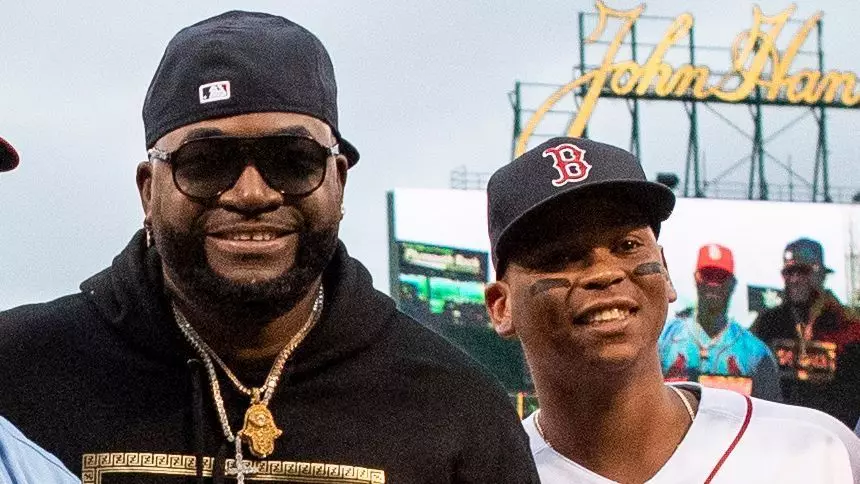The dynamic landscape of Major League Baseball has been characterized by an ever-evolving understanding of player roles. Not long ago, the distinguished role of a designated hitter (DH) was often met with skepticism and resistance from players vis-à-vis traditional positions, particularly the infield positions like first base. Today, however, this narrative is changing. Rafael Devers, a talented player for the Boston Red Sox, stands at the center of this transformation. Recent comments by Hall of Famer David Ortiz shine a light on Devers’ capacity to navigate this complex situation while advocating for player autonomy—a concept that merits serious consideration.
Ortiz, who is well-known for his revered career primarily as a DH, suggests that the decision regarding Devers’ position should rest squarely in the hands of the player himself. He expressed that Devers has been fulfilling his role exceptionally as a DH, despite being thrust into the spotlight under challenging circumstances. The unfortunate injury of first baseman Triston Casas has re-ignited conversations about positional shifts, but Ortiz emphasizes the importance of allowing players like Devers to make their own choices about their responsibilities on the field.
Understanding Player Psychology
What Ortiz underscores is more than just a logistical issue; it involves the psychology underlying a player’s performance. Athletes are not robots programmed to adapt instantly to changes in strategy and position. Each decision comes with emotional and motivational ramifications. Ortiz, who knows the pressure of expectations intimately, advocates for Devers’ right to choose whether to expand his skill set or remain committed to the role the team has carved out for him.
The experience of Devers serves as a case study in how players’ inclinations and sense of agency matter in professional sports. This is particularly important as he had initially expressed dissatisfaction with the DH role, suggesting an inner conflict that could affect his performance on the field. The fact that he’s now among the league leaders with a .286 batting average and an impressive tally of RBIs showcases how the initial resistance transformed into success under the right conditions. Players flourish when they feel a sense of control over their roles and responsibilities.
Navigating the Business of Baseball
Ortiz’s perspective doesn’t merely consider the emotional dimensions of player autonomy; it also takes into account the financial intricacies involved in these decisions. Devers is under an unprecedented contractual structure as the Red Sox solidified their commitment to him with a three-year, $120 million deal. Players understand the stakes, and decisions surrounding their positions can have long-term implications for both their careers and their teams’ futures.
When the organizational decisions intersect with a player’s identity—like the pressure to adapt quickly to a position—conflict can arise. Ortiz’s highlight of the need for gradual learning suggests that organizations must balance performance expectations with the reality of player development. Perhaps a more collaborative dialogue about readiness and willingness to transition could serve both the player and the franchise effectively.
Reimagining Future Leadership in the Game
As baseball continues to evolve, the insights from seasoned players like Ortiz can lay the groundwork for a more equitable environment where players’ voices are heard. This is particularly important for younger generations of athletes who may grapple with given expectations from both the organization and fans. Ortiz, with his stature and experience, could serve as a mentor figure in advocating this shift, forwarding not only the interests of players but also enriching the culture of the game itself.
The conversation around Rafael Devers is a microcosm of a larger need for dialogue surrounding player roles in modern baseball. Engaging players in collaborative decision-making processes, respecting their autonomy, and clearly communicating the rationale behind positional demands can foster a healthier atmosphere around the game. As we witness this evolution, it becomes clear that player empowerment, guided by experience and wisdom, may forge the path to holistic growth within the league.

